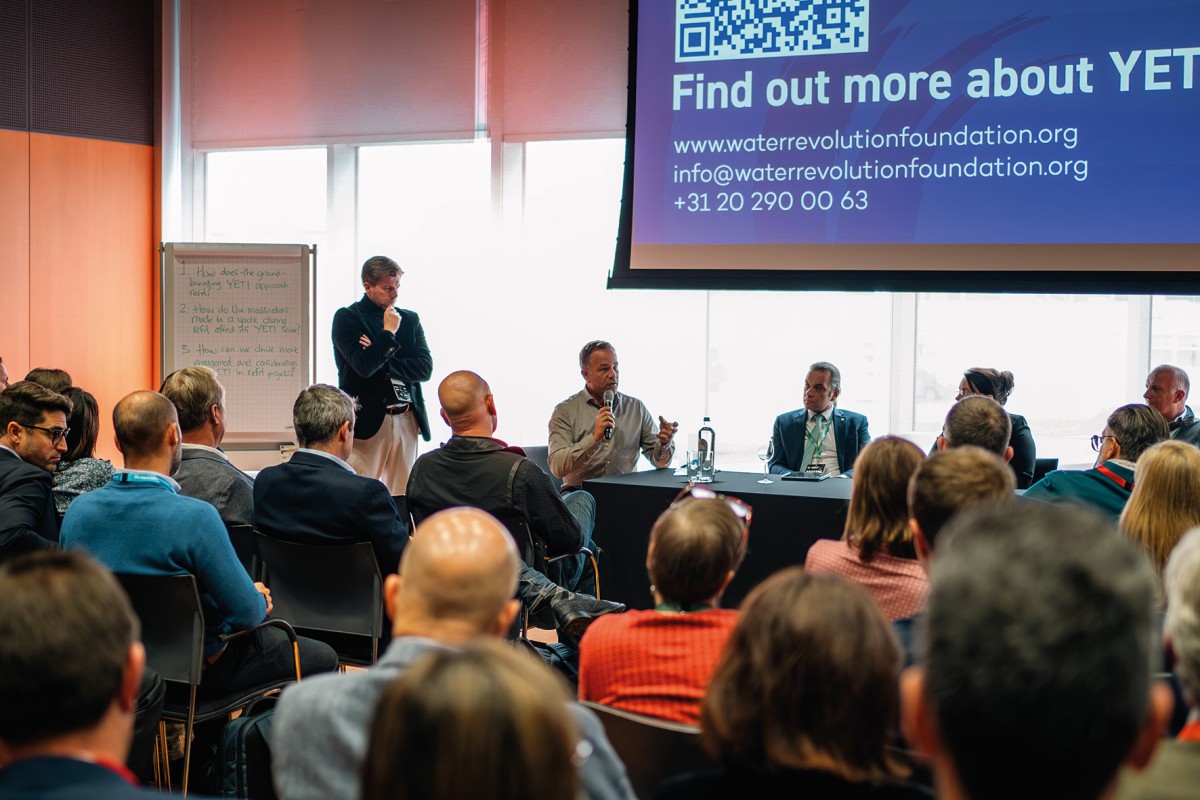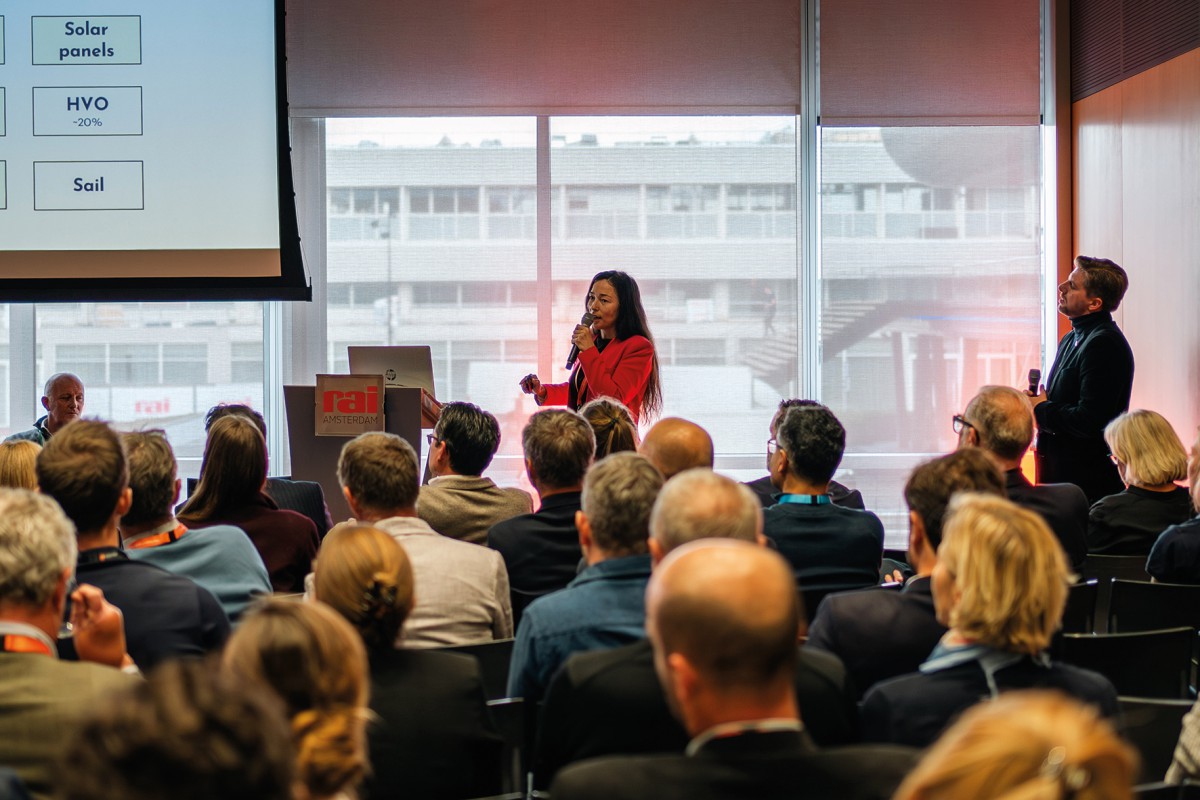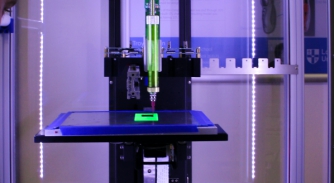Cracking the YETI code
Water Revolution Foundation’s Yacht Environment Transparency Index and its scoring system to monitor a vessel’s environmental footprint…

At the heart of The Superyacht Forum’s workshop titled ‘YETI – Lifecycle Impact and Refit’ lay a discussion about incorporating Water Revolution Foundation’s Yacht Environmental Transparency Index (YETI) into the refitting process. This wasn’t just a presentation; it was a platform for exchanging innovative ideas, probing into YETI’s potential to guide sustainable yacht refit practices.
With more than 6,000 active 30m+ superyachts in the existing fleet, it’s crucial to look beyond new builds and recognise the potential reduction savings achievable during refits. These changes, ranging from low-hanging fruit to major adjustments, can cumulatively lead to significant reductions in environmental harm across the industry.
Refit is a large multifaceted system with an entire ecosystem of parties and elements involved from start to finish. The many different ways systems can contribute to improving the impacts made at this stage in a superyacht’s life cycle are challenging, but also a great opportunity.
Hanna Dąbrowska, a naval architect and sustainable design specialist with Water Revolution Foundation, emphasised the importance of informed decision-making. “In our industry, it’s really not wise to make judgements on something you cannot measure or don’t know,” she said. Her words reflected the growing recognition of YETI as an invaluable tool for guiding environmentally conscious decisions in yacht refitting.
Refit is a large multifaceted system with an entire ecosystem of parties and elements involved from start to finish.
The YETI tool, driven by a comprehensive set of parameters including vessel length, engine power curve and sail details, utilises Life Cycle Assessment (LCA) methodologies to quantify a yacht’s environmental impact. This scoring system not only benchmarks a yacht’s ecological footprint, but also illuminates potential areas for improvement.
Some example recommendations include adding batteries to allow for peak shaving, solar panels, exhaust treatments such as SCR and DPF, diesel-electric propulsion, heat recovery and e-heaters. Water Revolution Foundation’s database of verified sustainable solutions can also further assist in making the decision about which technologies to implement on board.
When a delegate asked, “How do we change the mindset that sustainability is just as important?”, Robert van Tol, executive director of Water Revolution Foundation, replied, “We are in an emotional industry, to keep emotion involved, such as showing through YETI that a higher score is possible and getting them excited.”
While yachts will face increasing regulatory and other pressures to improve environmental performance, other parties involved in the refit process will also face such pressures, which will affect the decision-making of a yacht’s refit.
One example highlighted by an audience member was that the Association of British Insurers has a 2030 target of 50 per cent reduction in Scope 3 emissions (everything they insure) and net zero by 2050. So it may be the case that insurers with these goals won’t insure yachts unless they have sufficient environmental credentials to contribute to these goals. As the audience member said, “It’s not so much what’s going on now, but it’s future-proofing your yacht is what I think is really important.”
 Hanna Dąbrowska, naval architect and sustainable design specialist.
Hanna Dąbrowska, naval architect and sustainable design specialist.
Diving deeper into specifics, Water Revolution Foundation highlighted key areas for emissions reduction. It pointed out that a significant portion of a marine engine’s energy output post-combustion is heat, which is often not optimally utilised. Therefore, the adoption of heat recovery systems stands out as a promising avenue for enhancing energy efficiency during yacht refits.
Although a concern may be making these investments at refit, where the owner won’t see the benefit if the yacht is resold, it could actually improve the resale value. Also, as many of these technologies involve fuel, there could also be operational cost savings, which is a sufficient incentive for many.
A captain in the audience asked what could be done by Water Revolution Foundation to ensure other sectors of the yacht service industry could score or certify all those involved in the refit service ecosystem (yacht management, suppliers, contractors, etc.), to ensure they are playing their part in following the philosophy of YETI by encouraging and providing the best possible environmental refit.
“I really believe that [new] generation of owners is going to make my generation of skippers very ashamed. I think we are going to see a new generation of owners making their yachts less fossil-fuel-reliant.”
While such a scheme could educate those involved with the refit services, there were also comments made across the audience that the yachting industry still has much to learn from other industries such as cruise and offshore that are seemingly much further ahead with impact improvement and sustain-able practices and solutions.
It seems this issue may be addressed in the future. Captain Derek Munro said, “I really believe that [new] generation of owners is going to make my generation of skippers, and everything else probably, very ashamed. I think we are going to see a new generation of owners doing a lot more of that kind of thing in the environment, as well as making their yachts less fossil-fuel-reliant.”
This younger generation will drive change in today’s owners by putting pressure on the older generations, or they are already making these decisions themselves, and we are starting to see that there is more emotion connected to reducing environmental impact.
Another sector involved in the refit that also stands to gain from encouraging a better refit is the shipyard, particularly as the new Corporate Sustainability Reporting Directive (CSRD) regulations will require information on the yard’s actions and performance in improving its sustainability credentials.
“You need plenty of time to prepare yourself for a proper sustainable project.”
Stefan Coronel, manager refit at Royal Huisman, pointed out that shipyards “have to put more effort into producing ESGs, and live by them”. We’ve already seen that specialist refit yards such as Amico & Co, MB92 and Cantieri Rossini have been at the forefront in improving their sustainability and publishing documents on their efforts and intentions to improve.
Working with a forward-thinking yard could also allow for improvements to the impact of the yacht at the planning stage. Coronel said, “You need plenty of time to prepare yourself for a proper sustainable project.” An example given by Munro was if you can reduce the number of trucks needed to deliver the same amount of equipment to the yard by combining deliveries, you’ll reduce the impact without any additional cost to the owner.
One of the key distinctions highlighted was that there are two types of refit: a required class survey refit that is small and fast, and a more intrusive, complex and large refit, where the yacht can be on the dry for a number of months to improve major elements. It’s this larger refit where there is the opportunity for YETI to be used to improve the impact.
It was also evident that there was still some uncertainty from the industry representatives who attended the workshop about the wider point scoring of YETI, hence confusion on how to understand the change in score from refit activities, and so there was a desire for Water Revolution Foundation to better explain the system to the industry.
However, the fundamental question was more philosophical: why would an owner consider getting a YETI score with a personal desire to improve the environmental impact of their yacht when many feel that only regulation and governance will drive this among owners?
Overall, the workshop managed to provide some education on how YETI can help inform a refit and recognise the changes made to reduce a yacht’s environmental impact, alongside a healthy discussion about how else different parts of the industry can contribute to reduce the overall impact of a refit project.
Click here to become part of The Superyacht Group community, and join us in our mission to make this industry accessible to all, and prosperous for the long-term. We are offering access to the superyacht industry’s most comprehensive and longstanding archive of business-critical information, as well as a comprehensive, real-time superyacht fleet database, for just £10 per month, because we are One Industry with One Mission. Sign up here.
Related news

More sustainability jargon busting
Here, we explain more sustainability terms to equip you with an understanding of this fast-paced area
Technology

Mixed messaging or meaningful change?
Megan Hickling, TSG’s new Sustainability Editor, argues that the superyacht industry should be taking major initiatives that can actually be measured
Opinion

Can the industry print a better future?
3D printing could be the antidote that shipyards are looking for to enhance sustainability credentials
Technology

WRF set to release eco guidelines for on-board practices
A comprehensive set of eco guidelines, from and by crew, to guide in daily operations towards ‘eco-friendlier’ on-board practices
Crew

“Let’s all get behind a new designers’ protocol”
Dickie Bannenberg calls for a standardised industry document that contains guiding sustainability principles for every yacht designer
Owner
Related news
More sustainability jargon busting
6 months ago
Mixed messaging or meaningful change?
6 months ago
Can the industry print a better future?
7 months ago
“Let’s all get behind a new designers’ protocol”
9 months ago



